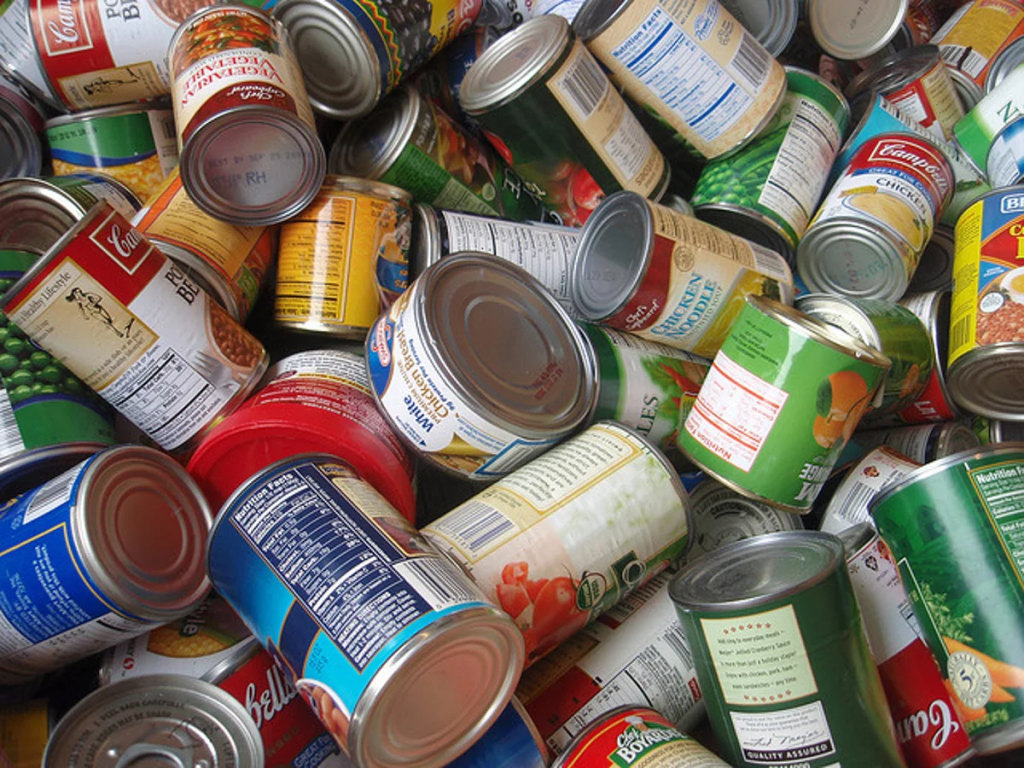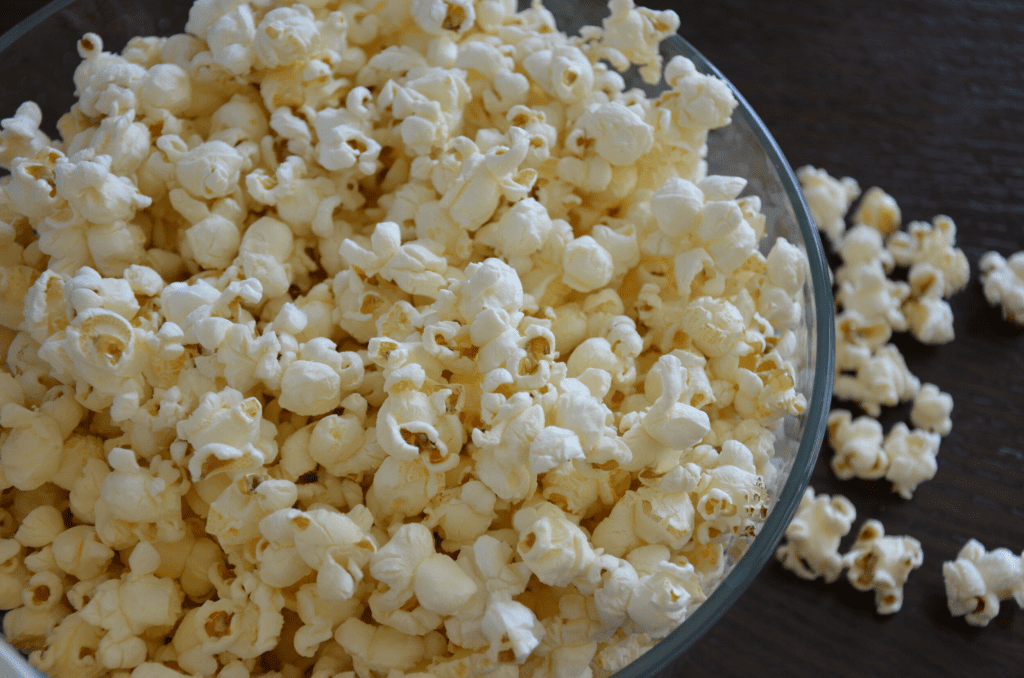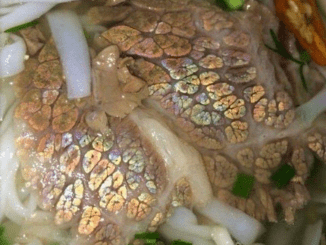Let’s face it—most of us don’t think twice about what’s in our grocery carts. But what if some of the foods we eat regularly are quietly increasing our cancer risk? According to growing research, several everyday items can contain harmful substances tied to cancer development. And here’s the worst part: they often look perfectly innocent.
If you’re serious about protecting your health, these are the 10 cancer-linked foods you should stop eating immediately—plus what you should eat instead.
BPA-Lined Cans: The Silent Chemical Threat

BPA, short for bisphenol-A, is a chemical used to line the inside of canned foods. It’s there to protect the metal from corrosion and preserve the contents. But BPA has been linked to hormone disruption, infertility, and several forms of cancer, including breast and prostate cancer.
Unless your canned goods are labeled “BPA-free,” you could be ingesting trace amounts of this toxin every time you open a can. Try swapping canned items for frozen or fresh versions, or look for packaging that guarantees BPA-free protection.
Cured and Smoked Meats: Processed but Problematic
Who doesn’t love bacon, salami, or hot dogs? Sadly, they come with a side of carcinogens. These meats often contain nitrates and nitrites, preservatives that convert into N-nitroso compounds during cooking—substances linked to colon cancer.
The World Health Organization has officially classified processed meats as carcinogenic. If you’re craving savory flavor, try grilled turkey, baked chicken, or plant-based alternatives without added preservatives.
Farmed Fish: Not as Clean as You Think
Farmed fish may seem convenient and affordable, but they often contain higher levels of pollutants like PCBs (polychlorinated biphenyls), which are known carcinogens. Overcrowding in fish farms also leads to more antibiotics and pesticide use.
If you love seafood, stick with wild-caught fish whenever possible. It’s leaner, cleaner, and less likely to carry hidden toxins.
Video : Top 10 cancer causing foods to avoid. Never eat them again
Grilled Meats: Smoky Flavor, Hidden Danger
Backyard BBQs might be fun, but grilling meat over open flames can expose you to polycyclic aromatic hydrocarbons (PAHs). These compounds form when fat drips onto hot coals or flames, creating smoke that coats your food with potentially cancerous particles.
To reduce your risk, avoid charring meat, use marinades that limit chemical formation, or opt for gentler cooking methods like baking, steaming, or roasting.
Hydrogenated Oils: Man-Made and Health-Damaging
Hydrogenated oils, also known as trans fats, were created to increase shelf life and improve texture. But these fats have been shown to increase inflammation, disrupt cholesterol levels, and promote diseases like heart disease and even cancer.
Many processed snacks and baked goods still contain trans fats. Read ingredient labels carefully and switch to natural oils like olive oil, avocado oil, or coconut oil.
Microwave Popcorn: The Sneaky Chemical Snack
Microwave popcorn seems harmless, but the inside lining of those convenient bags often contains PFOA and PFOS—chemicals linked to tumors and liver damage. These toxins leach into the popcorn when heated.

Instead, make your own popcorn on the stove with organic kernels and a splash of healthy oil. It’s cheaper, tastier, and way safer.
Non-Organic Produce: Pesticides on Your Plate
Fruits and vegetables are healthy, right? Yes—unless they’re coated in pesticides. Conventionally grown crops are sprayed with chemicals that have been associated with a higher risk of cancer.
The solution? Buy organic for the “Dirty Dozen” foods like strawberries, apples, spinach, and peppers. If that’s not possible, wash thoroughly and peel when needed to limit exposure.
Processed Foods: A Cocktail of Preservatives and Chemicals
From frozen meals to instant noodles, processed foods are filled with preservatives, artificial flavors, and synthetic additives. These ingredients are often linked to gastrointestinal cancers and inflammation throughout the body.
Replace processed meals with whole, home-cooked options whenever possible. Even simple homemade dishes are safer and more nourishing.
Refined Sugars: Feeding More Than Just Cravings
Cancer cells thrive on glucose. High sugar diets contribute to obesity, insulin resistance, and chronic inflammation—all of which set the stage for cancer development. Refined sugars are everywhere—from soda to pastries to “healthy” granola bars.
Cut back by choosing natural sweeteners like honey, dates, or monk fruit. Drink more water and avoid sugary drinks that offer no real nutrition.
Video : Top 10 Anti Cancer Foods (Part 1) – YOU NEED TO EAT THESE!
Soda and Sports Drinks: Colorful, Sweet, and Toxic
These beverages are loaded with artificial colors, high-fructose corn syrup, and chemicals like brominated vegetable oil. They’ve been linked to a range of health problems, including obesity and certain cancers.
Hydrate with water, herbal teas, or homemade electrolyte drinks made with lemon, sea salt, and honey. Your body—and your brain—will thank you.
Conclusion: You Are What You Eat, So Choose Wisely
Your daily food choices matter more than you think. While no one’s perfect, being aware of cancer-linked foods allows you to take real steps toward protecting your health. By replacing these hidden hazards with whole, unprocessed, and chemical-free options, you can reduce your risk and feel better from the inside out.
The key isn’t perfection—it’s intention. Choose food that fuels you, not food that threatens your well-being. Because what you eat today can shape the quality of your life tomorrow.


